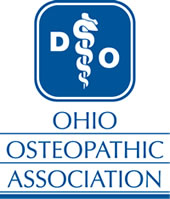Ohio Legislature Breaks for Summer
[June 16, 2020]
The Ohio House of Representatives and Ohio Senate continued their busy schedule last week before breaking for summer recess. The Senate schedule for the rest of 2020 calls for a few summer sessions, potential dates in September-October, and then an extensive session after the general election. The Speaker doesn’t have any House sessions scheduled until November 10. Both House and Senate leaders have separately said they will conduct listening tours this summer on police reform.
Here’s a run-down of some of the recent health care-related bills that have occupied their time:
COVID-RELATED BILLS
- HB 61 which incorporated another bill, SB 31, to require permission for contact tracing. Passed by Senate; House refuses to concur with Senate amendments; next step: Conference Committee.
- HB 606 / SB 308 The bills grant civil immunity to a person who provides services for essential
businesses and operations for injury, death, or loss that was caused by the transmission of COVID-19 during the period of emergency declared by Executive Order 2020-01D, which was issued on 3-9.
- HB 606 provides qualified immunity to physicians and a wide range of health care workers who provide services during a declared disaster or emergency; makes prison staff, grocery-store workers, and first-responders eligible for workers’ compensation should they become infected with the coronavirus; and shields state and local governments from coronavirus-related suits. Passed by House; sponsor testimony last week in Senate Judiciary Committee.
- SB 308 removed language that would have continued the immunity into permanent law; holds health care immunity to a reckless standard; eliminates immunity for intentional conduct; and clarifies that orders and recommendations do not create a legal duty for tort law. OOA submitted written testimony to Senate Judiciary Committee. Passed by Senate; assigned to House Civil Justice Committee.
- HB 624 requires reporting of specific COVID-19 testing data from the Department of Health. Opponents argued most of the information is already available, infringes on patient confidentiality, and undermines health officials. Passed by House. Awaiting Senate Committee referral.
- HB 673 allows pharmacists to conduct COVID-19 and antibody tests and to supervise pharmacy interns and certified pharmacy technicians to do the same. Passed by House; awaiting Senate Committee referral.
- HB 679 requires a health benefit plan to reimburse a health care professional for a covered telehealth service, but does not require the reimbursement to be a specific amount. Passed by House; awaiting Senate Committee referral.
- SB 1 The Senate unanimously rejected the House’s attempt to limit the authority of Dr. Amy Acton, former Ohio Department of Health director, by refusing to concur with amendments. Awaiting House to name Conference Committee managers.
NON-COVID BILLS
- HB 11 creates a series of programs to address infant mortality. It was amended to include changes to the state General Revenue Fund, allowing certain Medicaid appropriations to be allocated toward the federal share. Passed by Senate; House concurred with Senate amendments; awaiting Governor’s signature.
- HB 253 to legalize the discharge of consumer grade fireworks, including bottle rockets, firecrackers, and missiles. OOA submitted opposition testimony. Passed House; not yet assigned to Senate Committee.
- HB 388 regarding surprise medical billing. Creates a multi-step process for negotiating out-of-network
payments. The medical profession, insurance industry, and lawmakers have been working on the issue for more than a year. Under the proposal, an out-of-network provider sends its bill to the patient’s insurance company. The insurer can propose a different payment: the highest of their in-network rate, their out-of-network rate, or the federal Medicare rate. The provider can either accept the payment or negotiate another rate. If that fails, the parties go to arbitration with the loser paying 70% of arbitration costs and the winner paying the rest, with the added expense intended to encourage an agreement during the negotiation period. During the floor vote, lawmakers noted the compromise puts Ohio at the forefront of the issue and called the bill model legislation for other states. Senate has its own version, SB 198. Passed House; awaiting Senate Committee assignment.
- SB 252 to prohibit “fail first” coverage of drugs to treat stage four advanced metastatic cancer. Passed Senate; referred to House Health Committee.
- SCR 14 introduced last week. Declares racism a public health crisis and calls on the Governor to establish a working group to promote racial equity. Hundreds of individuals submitted testimony to the Senate Committee in support. It was during a hearing on the resolution that Sen. Steve Huffman, MD, made his derogatory comments that have made national news. The House companion bill did not receiving a hearing before the summer break.



